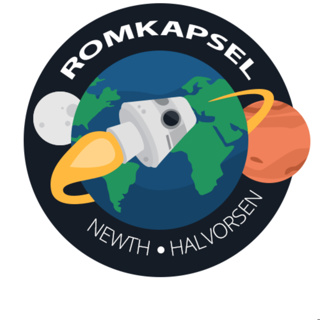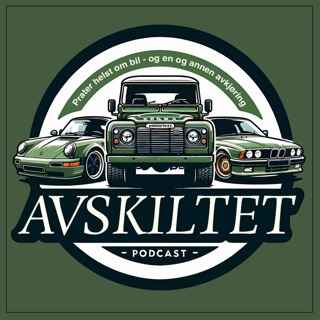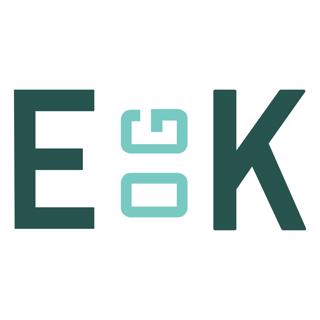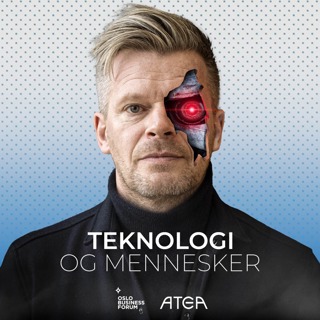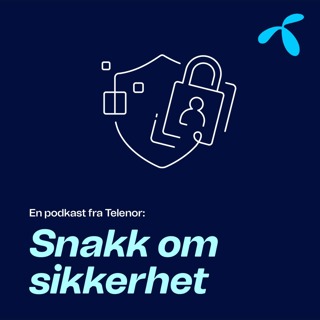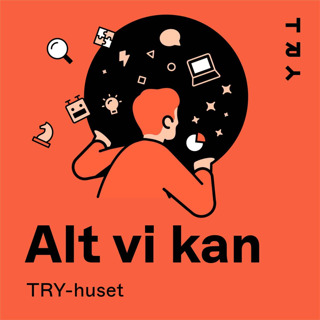
Disciplined Agile Training Event Recap w Tony Johnson
This is part 2 of my interview with Tony Johnson from Crosswind PM. In this part of the interview Tony and talk through his recent experience attending a Disciplined Agile Training event held by PMI. We also share our thoughts and opinions on why PMI acquired Disciplined Agile and Flex and how we are expecting that to impact the Project Management community. In the first part of the interview, which you can find here (https://bit.ly/3bnDXw0), Tony and I discussed some of the upcoming changes to the Project Management Institute's Guide to the Project Management Body of Knowledge (PMBOK), how that will impact the PMP Exam, and the impact you can expect it have on your work in PM. If you’d like to reach out to Tony with follow up questions: Web: crosswindpm.com Email: tjohnson@crosswindpm.com Twitter: twitter.com/crosswindpm
12 Mai 202024min

Agile Virtual Summit with Adam Weisbart
One of the results of the health crisis we are currently facing is that large public gatherings are temporarily off the table. No in-person events. Many events have been canceled, some are working out how to move online and some new ones have been specifically created to take place in a virtual setting. The Agile Virtual Summit is taking place on Jun 1-5, 2020. It’s all online and you can earn upwards of 25 PDU’s by joining some of the most influential thought leaders in the Agile Space (and beyond.) The speaker list includes Diana Larsen, Lyssa Adkins, Jim Benson, Clinton Keith, Ronica Roth, and more. In this episode of the podcast, Adam Weisbart and I talk about what led to the event, why he put it together, and what to expect from it. In addition to talking about the event, Adam and I also discuss some of the challenges we’ve each faced since moving to a way of working that is 100% online. We share some of the things we’ve learned and tips that can help you be more effective for your teams in this new way of working. Agile Virtual Summit: https://agilevirtualsummit.com/ Contacting Adam: Web: https://weisbart.com/ LinkedIn: https://www.linkedin.com/in/weisbart/ Twitter: https://twitter.com/Weisbart Email: adam@weisbart.com
5 Mai 202020min

Remote Facilitation Best Practices and Anitpatterns with Mark Kilby
There is probably nothing in the last 20 years that has had as comprehensive an impact on how we work as Covid-19. Yes, there were team members who worked remote before or maybe your team was distributed around the globe, but we've never been in a situation where EVERYONE was working from home. That is a completely different thing. It comes with unique challenges that we are only starting to adjust to. For me personally, moving my work online has been incredibly challenging, and while the challenges are not always easily solved, and they are not always challenges I want to deal with, they are always rewarding. Along with the things I've learned how to do right, there are many things I have learned to do wrong. The exploration of how to get better at online facilitation and teaching led me to a point where I knew I needed to check in with an expert. As luck would have it, Mark Kilby happened to be in an online training I took recently on how to facilitate large online collaboration. Mark is the co-author, along with Johanna Rothman, of the book From Chaos to Successfully Distributed Agile Teams. If you work with distributed teams and you are looking for practical answers to struggles you are facing, YOU NEED THIS BOOK. After the class, I asked Mark if he'd be open to talking about what it has been like for him since Corona hit and what he's discovered in the way of best practices and antipatterns for online facilitation. So if you are looking for some tips on what to do and what to not do when you are working with your teams online, you'll find a lot of valuable ideas shared in this interview. Mark's Book From Chaos to Successfully Distributed Agile Teams https://amzn.to/3bPVDkT Contacting Mark: Web: https://www.markkilby.com Twitter: https://twitter.com/mkilby LinkedIn: https://www.linkedin.com/in/mkilby/
30 Apr 202046min

Updates to the PMBOK with Tony Johnson
This is the first part of a two part interview with Tony Johnson, Founder and CEO of Crosswind Learning. Crosswind is a PMI REP based in Carrolton, Texas, that has been providing instruction in project management for 20 years. In this part of the interview, we focus on the upcoming changes in the new edition of the PMBOK, including what that will mean for practitioners and especially how it will impact those preparing for the PMP exam. If you aren’t up to speed on how the new PMBOK is going to be different, you will definitely want to give this a listen because there are some significant changes being made to the structure of the standard and how things like Agile practices are being woven in. And make sure to check back next week for Part 2 where Tony will share his recent experience going through PMI’s Disciplined Agile training. If you’d like to reach out to Tony with follow up questions: Web: https://crosswindpm.com Email: tjohnson@crosswindpm.com Twitter: https://twitter.com/crosswindpm
12 Apr 202020min

Getting Better at Saying No with Tim Wise
“Simplicity--the art of maximizing the amount of work not done--is essential.” ~From the 12 Principles of Agile Software https://agilemanifesto.org/principles.html It is one of the most basic responsibilities of the Product Owner and one almost every PO struggles with... saying "No" to people who ask for things. A Product Owner who can't say No is going to end up with a Product Backlog jammed full of things that can't be done. This puts the entire organization at risk. At the same time, a PO who is constantly telling Senior Management "No" to all their requests may find themselves "being offered the opportunity to enjoy working at another company." So, how do you go say "No" from a position of strength and safety? How do you know that saying "No" is really the right response? What kind of challenges do you need to be ready for? How can you prepare for those uncomfortable moments when you are waiting to see if you will be thanked for your honesty and candor, or told to leave your ID badge with HR on your way out? In this episode of the Reluctant Agilist, Tim Wise joins me to talk through various aspects of the challenge of saying "No." Links from the Podcast Agile Day Atlanta http://agiledayatlanta.com Books Mentioned Turn the Ship Around - L. David Marquet https://amzn.to/2QXOGWD Leadership is Language - L. David Marquet https://amzn.to/2w2mRFj Speed of Trust - Stephen Covey Jr. https://amzn.to/3439xgy 7 Habits of Highly Effective People - Stephen Covey https://amzn.to/3bCsDMX Contacting Tim Twitter https://twitter.com/timswise LinkedIn https://www.linkedin.com/in/timwise/ Email: Tim@leadingagile.com
31 Mar 202050min

Chief Scrum Master & Chief Product Owner - Checking in with Melissa Boggs and Howard Sublett
Towards the end of 2018, The Scrum Alliance restructured its organization around a new leadership model. Howard Sublett returned to the Scrum Alliance as Chief Product Owner and shortly after that, Melissa Boggs joined as Chief Scrum Master. In these new roles, they are truly leading an effort to change the world of work. In this episode of the podcast, I had a chance to check in with Melissa and Howard on how the change is going. We discuss the changes made to the way the Scrum Alliance is organized around a team model, where individuals select areas they are most passionate about and teams where they can add the most value. We also talk about how this change has impacted each of them personally, digging into the things they are most proud of, the areas they are still working on, and lessons they have learned along the way. You can catch up on all of this by checking out their Unscripted posts (see the link below.) The interview closes out with a little taste of what you can expect at the 2020 North American Global Scrum Gathering which is taking place in NYC this May. Check out Scrum Alliance Unscripted https://www.scrumalliance.org/unscripted Contacting Melissa Boggs Web: https://www.scrumalliance.org/community/profile/mboggs2 Twitter: https://twitter.com/hmngbirdagility Contacting Howard Sublett Web: https://www.scrumalliance.org/community/profile/hsublett Twitter: http://www.twitter.com/howardsublett The 2020 North American Scrum Gathering - New York City - May 11-13, 2020 https://events.scrumalliance.org/sgnyc20
2 Mar 202048min

RyanRipley - Fixing Your Scrum
Ryan Ripley wears many hats. He's a Professional Scrum Trainer, an Agile Coach, the creator of the Agile for Humans podcast, a blogger, a speaker, and now... author! Last month, Ryan and Todd Miller released Fixing Your Scrum (https://amzn.to/2Pi46En), a book chock full of real-life stories from two seasoned Agile coaches who spend their days helping organizations, teams, and individuals find a better way to work. In this episode of The Reluctant Agilist, Ryan and I talk about the book, what motivated them to write it, and how it can help you figure out ways to address some of the issues you and your Scrum Team are facing. During the interview, Ryan and I also discuss what led him to become a Professional Scrum Trainer and why he finds teaching Scrum and Agile to be such a rewarding way to spend his days. If you are going to be in NYC on February 20, 2020, Ryan and Todd will be speaking at the Agile NYC User Group. http://bit.ly/37EcB2C If you haven't checked out Ryan's podcast Agile for Humans, that is something you definitely want to do. https://ryanripley.com/agile-for-humans/ Links Fixing Your Scrum by Ryan Ripley and Todd Miller https://amzn.to/2Pi46En Agile NYC User Group Event with Ryan Ripley and Todd Miller http://bit.ly/37EcB2C Contacting Ryan Web: https://ryanripley.com/ Agile For Humans Podcast https://ryanripley.com/agile-for-humans/ Training https://ryanripley.com/training-classes/
18 Feb 202048min

Leadership Is Language w David Marquet
Leadership is Language - L. David Marquet In 2013, David Marquet’s book Turn the Ship Around (https://amzn.to/3bbE2nk) was published, introducing intent based leadership to people all over the world. Since then David has worked with thousands of companies, teams, and individuals and helped them transform the way they think about and engage with others. His new book Leadership Is Language (https://amzn.to/3b6H3p7 ) digs even deeper into intent based leadership by focusing on the subtle ways in which the words we choose impact the message we are trying to send—how it is received and acted upon by others. In this interview, David and I talk about the new book and some of the key ideas he introduces in Leadership is Language. One of concepts we focus on in the interview is blue work vs. red work, or, the thinking work we do that embraces variability and the execution work we do where we want to limit variability. As an added bonus, David shares a a tip towards the end of the interview that is absolutely going to transform your ability to get people to arrive on time for events. Leadership is Language https://www.penguinrandomhouse.com/books/isbn/9780735217539 Contacting David If you’d like to reach David or learn more about Intent Based Leadership here are some links to get you started: Web: https://www.davidmarquet.com Web: https://intentbasedleadership.com Twitter: https://twitter.com/ldavidmarquet Facebook: https://www.facebook.com/ldavidmarquet LinkedIn: https://www.linkedin.com/in/davidmarquet/ Videos In addition to the book, David posts his “Leadership Nudges” on YouTube each week: Leadership Nudges Videos: http://bit.ly/2UlglmM Live Events And if you’d like to see David in person, here are some of his upcoming events: February 12 from 11:30 - 12:30 - Watermark Conference for Women https://www.watermarkconferenceforwomen.org/speakers/david-marquet/ February 16 from 1:00 - 1:40 PM Sunday Times Life Lessons; Choose Category Business https://www.lifelessonsfestival.com/programme February 17 from 6:45 - 8:00 PM How To Academy https://www.howtoacademy.com/events/leadership-is-language-how-to-empower-your-team-through-better-communication/ February 20 - Stockholm (Crisp Event) https://www.crisp.se/kurser/intent-based-leadership-david-marquet-february-20-2020 February 21 goAgile Event https://www.eventbrite.com/e/david-marquet-brings-language-is-leadership-to-copenhagen-dont-miss-this-keynote-book-signing-and-tickets-83150069095
4 Feb 202038min



